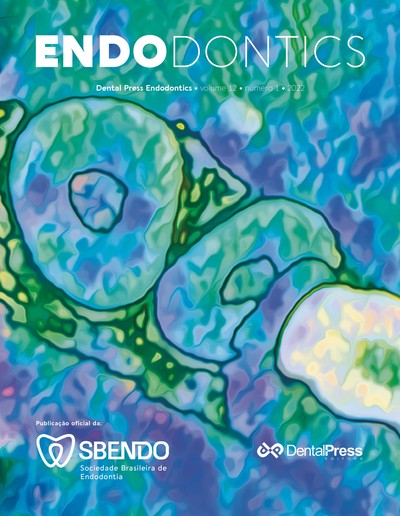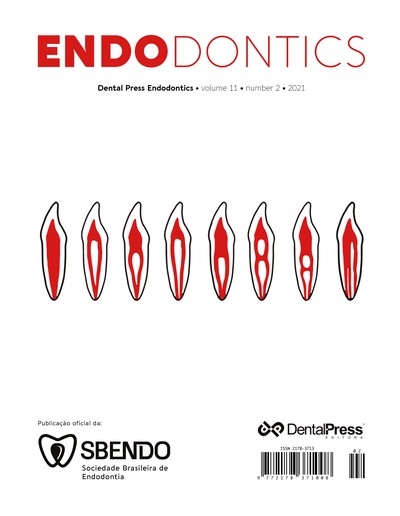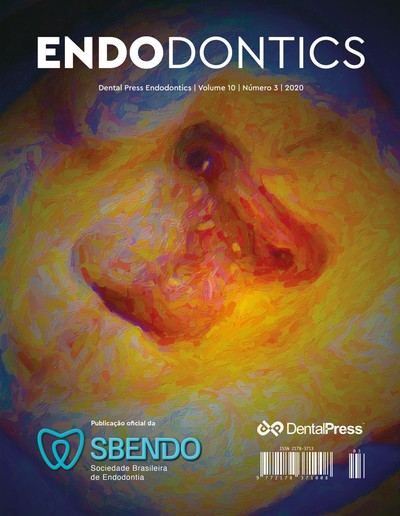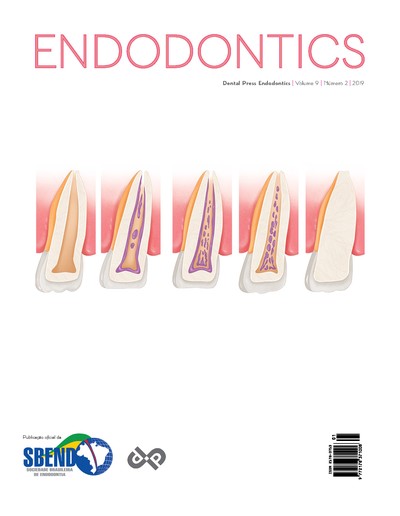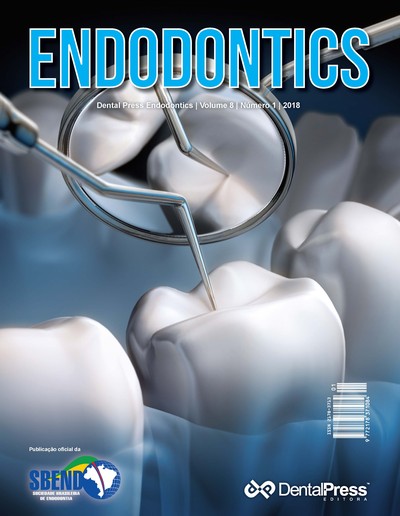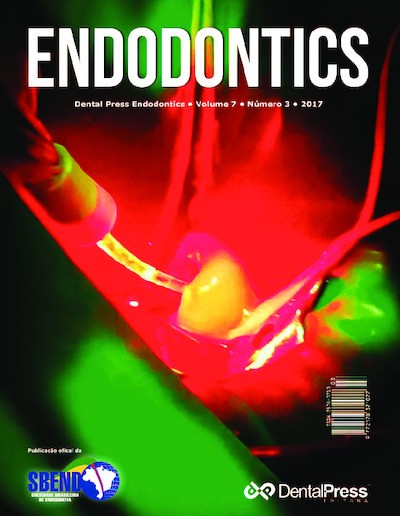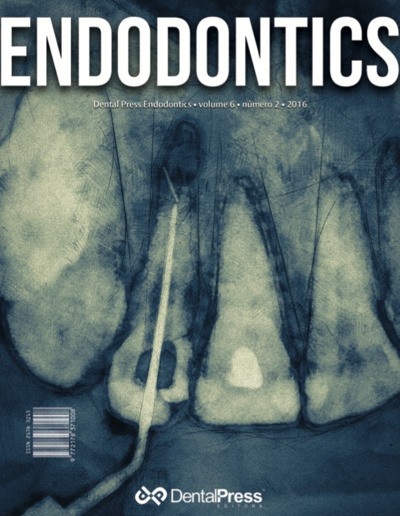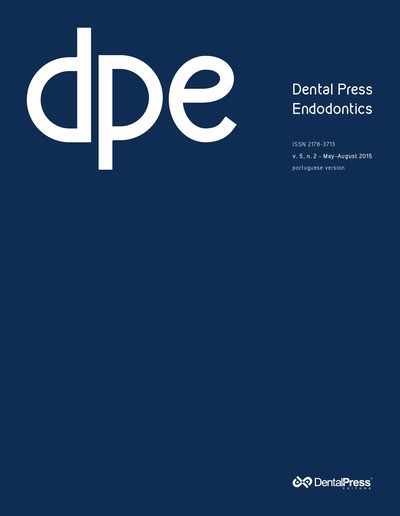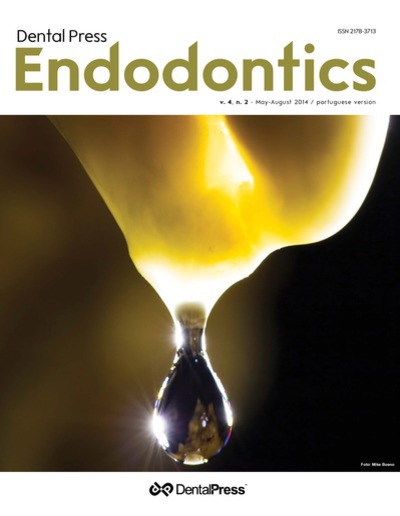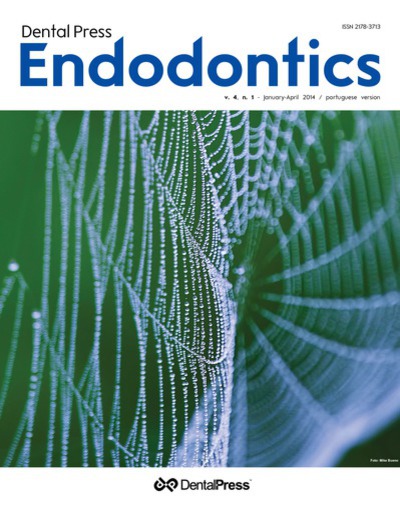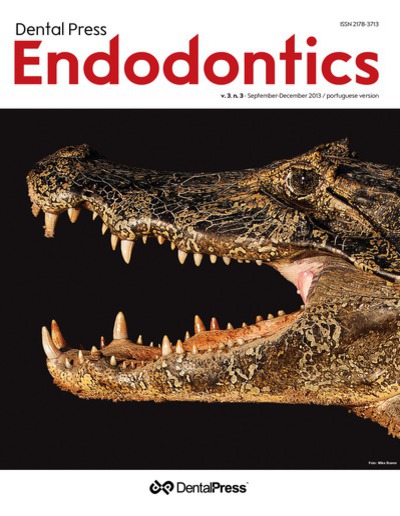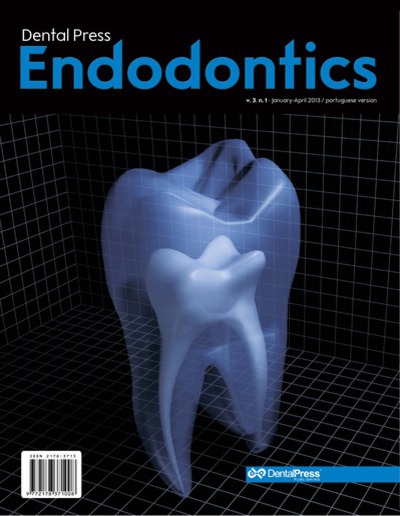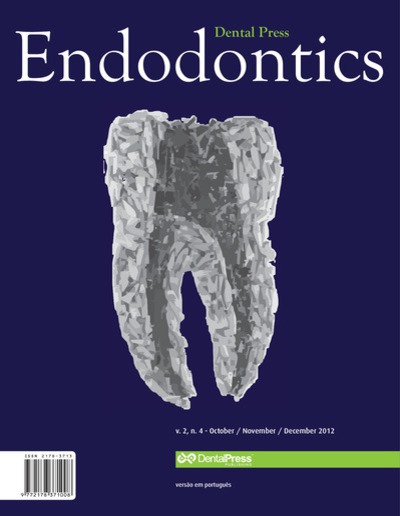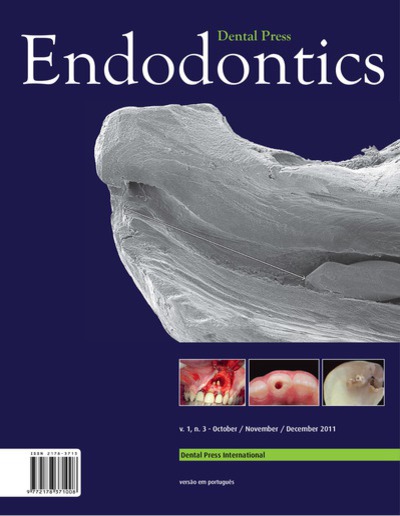
Chlorhexidine improves the mechanical properties of root dentin
Michael Ranniery Garcia Ribeiro, Felipe Rudá Silva Santos, Flávia Costa de Almeida, Soraia De Fátima Carvalho Souza
Objective: To evaluate the maximum flexural strength (MFS), elastic modulus (E), Knoop microhardness (KHN), and surface roughness (Ra) of root dentin treated with 2% chlorhexidine (CHX) solution. Materials and methods: Fifty bovine incisors with closed apex were selected. Thirty roots were cut into dentin bars (DB) and divided into three groups (n=10): control (no treatment), G1 (2.5% NaOCl + 17% EDTA) and G2 (2% CHX + H2O). The DB were submitted to the three-point flexural strength test to obtain the MFS and E. Twenty roots were cut longitudinally into two half-halves and placed in acrylic resin. The pulp surfaces were sanded and polished. They were rinsed according to the group (G1 or G2; n = 20 per group) and subjected to the KHN and Ra tests. SEM analysis was made. Data were analysed by one- and two-way ANOVA and Tukey post hoc test (a = 0.05). Results: The values of MFS (P < 0.05) and E (P < 0.01) were higher for G2. The KHN reduced after both endodontic irrigation treatments (P < 0.001), with no differences between them (P = 0.115). Ra was higher for G1 (P < 0.001). Conclusions: 2% CHX improved the mechanical properties of MFS, E and Ra of root dentin.
Keywords: Chlorhexidine. Dentin. Sodium Hypochlorite. Elastic Modulus.
How to cite: Ribeiro MRG, Santos FRS, Almeida FC, Souza SFC. Chlorhexidine improves the mechanical properties of root dentin. Dental Press Endod. 2019 Jan-Apr;9(1):37-42. DOI: https://doi.org/10.14436/2358-2545.9.1.037-042.oar
Friday, September 20, 2024 03:05
